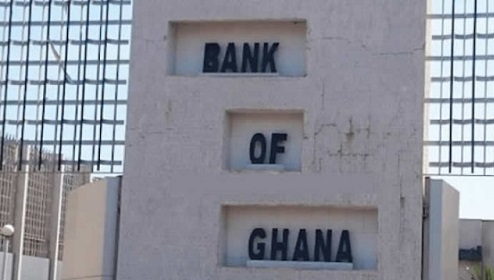The total losses to fraud suffered Banking, Specialised Deposit-Taking Institutions (B&SDI) and Electronic Money Issuers in 2021 amounted to GH¢61million as compared to GH¢25 million in 2020.
The figures contained in the B&SDI and EMI fraud report issued by the Bank of Ghana represents a 144.00% increase in year-on-year terms, although 2021 saw a minimal decline of 12.09% in the number of attempted fraud cases of 2,347 for the Banking and SDI sector as compared to 2,670 in 2020.
The report said the significant fraud types that accounted for this figure included ATM card/POS fraud, impersonation, lending and credit fraud, forgery and manipulation of documents, cash suppression and E-money fraud.
The report said the increase in usage of electronic and digital platforms in the financial sector resulted in an increase in ATM card/POS fraud.
However, there were other fraud types, which also recorded some huge losses.
Notable among these were impersonation, lending and credit fraud, suppression of cash, E-money and forgery and manipulation of documents.
ATM card/POS-related fraud recorded the highest loss of GH¢22million.
This, the report attributed to the negligence of some customers and weak systems of some financial institutions.
Another significant fraud type was impersonation which recorded a loss of GH¢10million. This loss was attributed to a lack of due diligence on the part of bank staff and customers of financial institutions when carrying out transactions.
Staff involvement
Staff involvement in fraud, which constituted 53.46% of total fraud cases increased in the year under review.
The report indicates that staff involved in fraud cases increased to 278, as compared to 253 in 2020, representing an increase of 9.88% in year-on-year terms.
For 2021, the Rural and Community Banks recorded the highest rate of staff involvement in fraud with a figure of 46.04%; the Universal banks accounted for 28.06%, while the Savings and Loans companies accounted for 16.55%.
The report said the persistent rate of increase in staff involvement in fraud recorded over the last three years shows that the Banking sector, especially the Rural and Community Banking sector had not put in place enough effort into curbing the trend.
Addressing fraud
As part of efforts to reduce fraud, the BoG said it was strengthening its fraud monitoring activities and enforcement of required internal controls and risk governance within banks, SDIs, EMIs and other regulated entities.
Among these include a notice to the public, banks and other regulated entities on the usage of the Ghana Card as the primary identification document for all financial transactions.
All Banks and SDIs are required to pay particular attention to this directive and ensure compliance. This will mitigate the incidence of fraud in the financial sector,” the report said.
“A secretariat has been set up at the Financial Stability Department of the Bank of Ghana to coordinate the activities of the Committee for Cooperation between Law Enforcement Agencies and the Banking Community (COCLAB). This is to ensure that COCLAB achieves its mandate of developing and implementing effective controls to mitigate fraud in the sector”.
